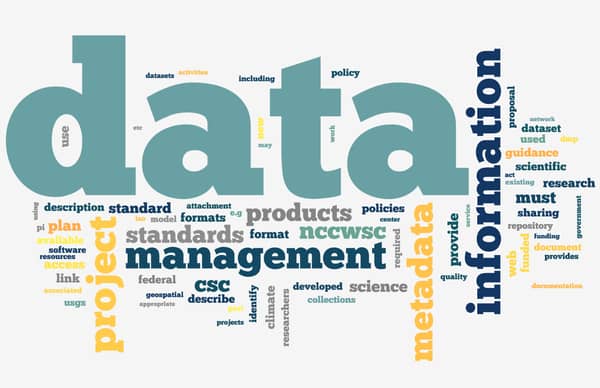
Frequently Asked Questions in Technology (Part 3)
July 8, 2021
Data Center Cabling: Single Mode vs Multimode Fibers
July 22, 2021Most companies in various industries use data in one form or another. We live in a world where most businesses rely on data for their everyday operations. But not all companies use this data to make improvements to the way their business operates. Implementing a data strategy can help companies progress their business. We will discuss a couple of different data strategies and the various components that make for a good plan.

What Is Data Strategy?
Data strategy discusses the various practices, instruments, and guidelines to help companies examine the way how their business is operating and highlights different ways to improve. There are several different uses and objectives for using a data strategy, which includes innovating, focusing on the user’s needs, and covering the company’s bases for any risks and regulations.
Data strategy can be a great way for companies to innovate. Understanding your company’s data can help company leaders know how and where to innovate. It can help with efficiency and it can also help the company understand future goals.
It can also help companies understand and help their user’s needs. It’s a good idea that a company’s data strategy be focused on helping improve their customer’s experience. One of the main focal points for a company’s data strategy should revolve around its customers.
Data strategy should also focus on addressing risks and tend to any regulations. This can be anything from security risks and compliance requirements.

What Are the Various Factors of a Data Strategy?
Every data strategy will differ from company to company, but several factors and processes help make a data strategy successful. This includes a business strategy, organizational roles, data architecture, and data management. All of these aspects should be considered when building and implementing a good data strategy.
Data Strategy Should Align with Business Strategy
The first thing that should be considered when creating a data strategy is it should align with your general business strategy. All of the measures and processes you take to improve your businesses should be supported by the data strategy you plan on implementing. Once you’ve recognized these aspects, the data strategy should help these ideas. These goals will differ from one business to another. Setting goals should be a primary focus for your overall business strategy and your data strategy. This should include both short-term and long-term goals.
Various Team Roles in Data Strategy
The next part of a good data strategy is having a plan on what to do with the data you are gathering and assigning who is in charge of certain data. Data analytics can be used in various ways and establishing different organizational roles will be vital. This can help ensure any duplicated data.
There are several different types of potential users for data. This can include data analysts, data engineers, data scientists, and business managers. Data analysts specialize in studying and understanding data. Data engineers are typically in charge of building the data architecture. Data scientists figure out ways to use the data that the engineers and analysts find. Business managers are in charge of reviewing data reports. These roles can change from company to company, but these are the people and positions in charge of storing, safeguarding, and understanding the data being brought in.
Building Your Data Architecture
The last focal point of a good data strategy is data architecture. Data architecture is made up of the various tools and procedures that help analyze and use the data gathered. This may comprise of on-premises and cloud-based hardware and software.
Knowing and understanding the different datasets that your company has is the first part of building a solid data architecture. Using a data catalog can be a great tool for this. Good data architecture will also include a data warehouse and a data pipeline to separate the data for storing and examination purposes.
Managing the Data
One of the main aspects of data management is data governance. This creates the procedures and obligations for team members. This will include data security and all forms of taking care of the company’s data. This will include all policies and plans if the company decides to move its data from one location to another.
Technology
Understanding the various technologies used to gather data is important. Finding and using the right technology will give the data analysts, data engineers, data scientists, and business managers a head start to make the most of the data found.

Why Is Data Strategy Important?
Data strategy can help businesses in several different ways. One of the benefits of having a data strategy is unlocking the power of the data. Once the data is collected, converting this data help companies run more efficiently. A data strategy can help businesses understand aspects that are working well and other things that aren’t.
Another reason a data strategy can be beneficial for companies is the amount of data being created. As we’ve mentioned in several different articles in the past, more than 90% of data has been created in the past couple of years. Because there is so much data being created, managing this data can be difficult. A data strategy will help manage this data for the analysts, engineers, scientists, and business managers.
Data strategy can improve data management and overall operations to run more efficiently. Understanding and implementing changes for efficiency will help companies in their overall operations.

A Trusted Data Center Provider Will Help with Data Management
A data strategy can help many different companies in different industries be more efficient and improve their overall operations. There are numerous moving parts when it comes to managing data, which could seem like a big undertaking. Partnering with a trusted data center provider can help with data strategy and give your company additional benefits. A data center provider will have top-notch security, the latest technology, and ‘round the clock support. If you’re looking for a data center provider—connect with us today.
